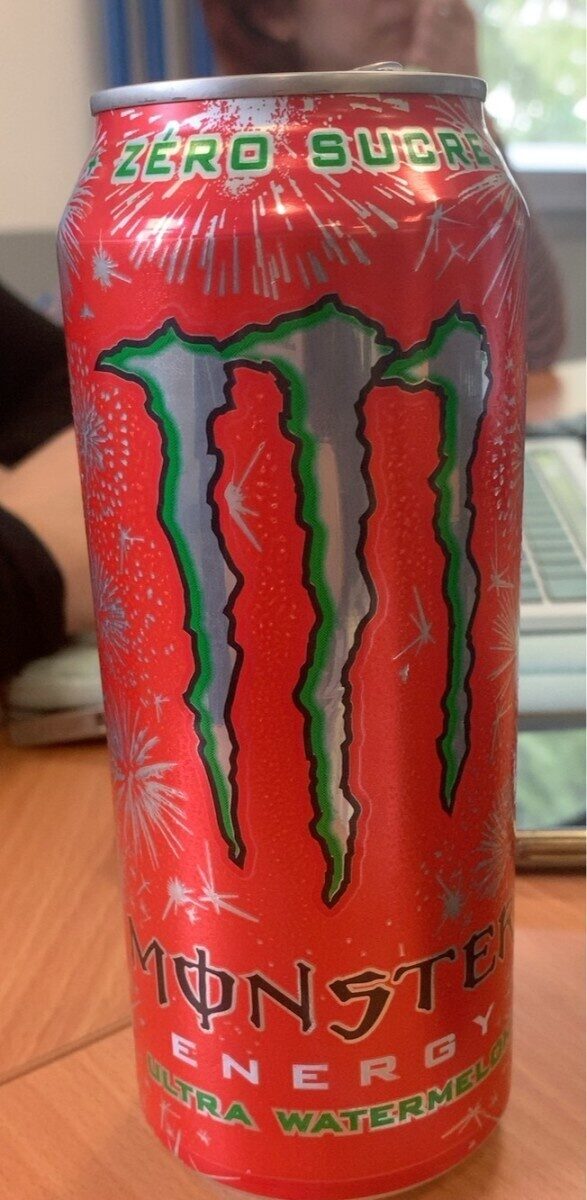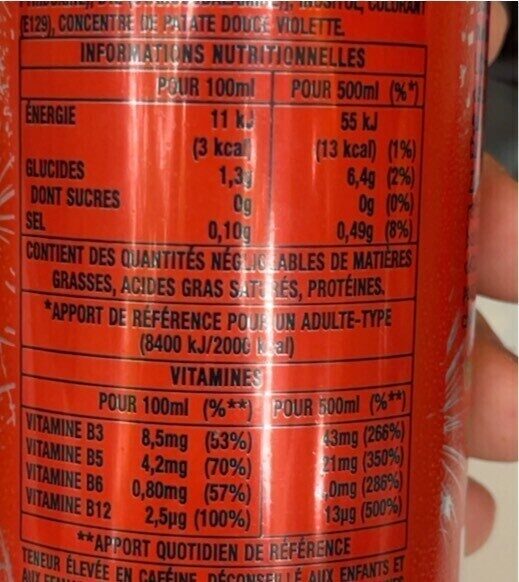Monster Energy - Ultra Watermelon - 500 ml
This product page is not complete. You can help to complete it by editing it and adding more data from the photos we have, or by taking more photos using the app for Android or iPhone/iPad. Thank you!
×
Barcode: 5060896621326 (EAN / EAN-13)
Quantity: 500 ml
Brands: Monster Energy
Categories: Beverages, Artificially sweetened beverages, Energy drinks, Energy drink without sugar and with artificial sweeteners
Countries where sold: France
Matching with your preferences
Environment
Packaging
Transportation
Report a problem
Data sources
Product added on by kiliweb
Last edit of product page on by foodvisor.
Product page also edited by kyva07, mimouette, segundo, yuka.sY2b0xO6T85zoF3NwEKvlhFFV8v1mhLWLwDVgHKXyeucL5jQUfpx7rrzMag, yuka.sY2b0xO6T85zoF3NwEKvlkJuY8aDkDifBjzTwESix9elPMDUOItQzIrVK6s, yuka.sY2b0xO6T85zoF3NwEKvlkxAXcbxmi6ZbxfWhmCX6ofVNMz4R4wo-IymMas, yuka.sY2b0xO6T85zoF3NwEKvlmxZA4HXuTn8ZkDmxheb6fjQJY7KUMxUvabUNas.









